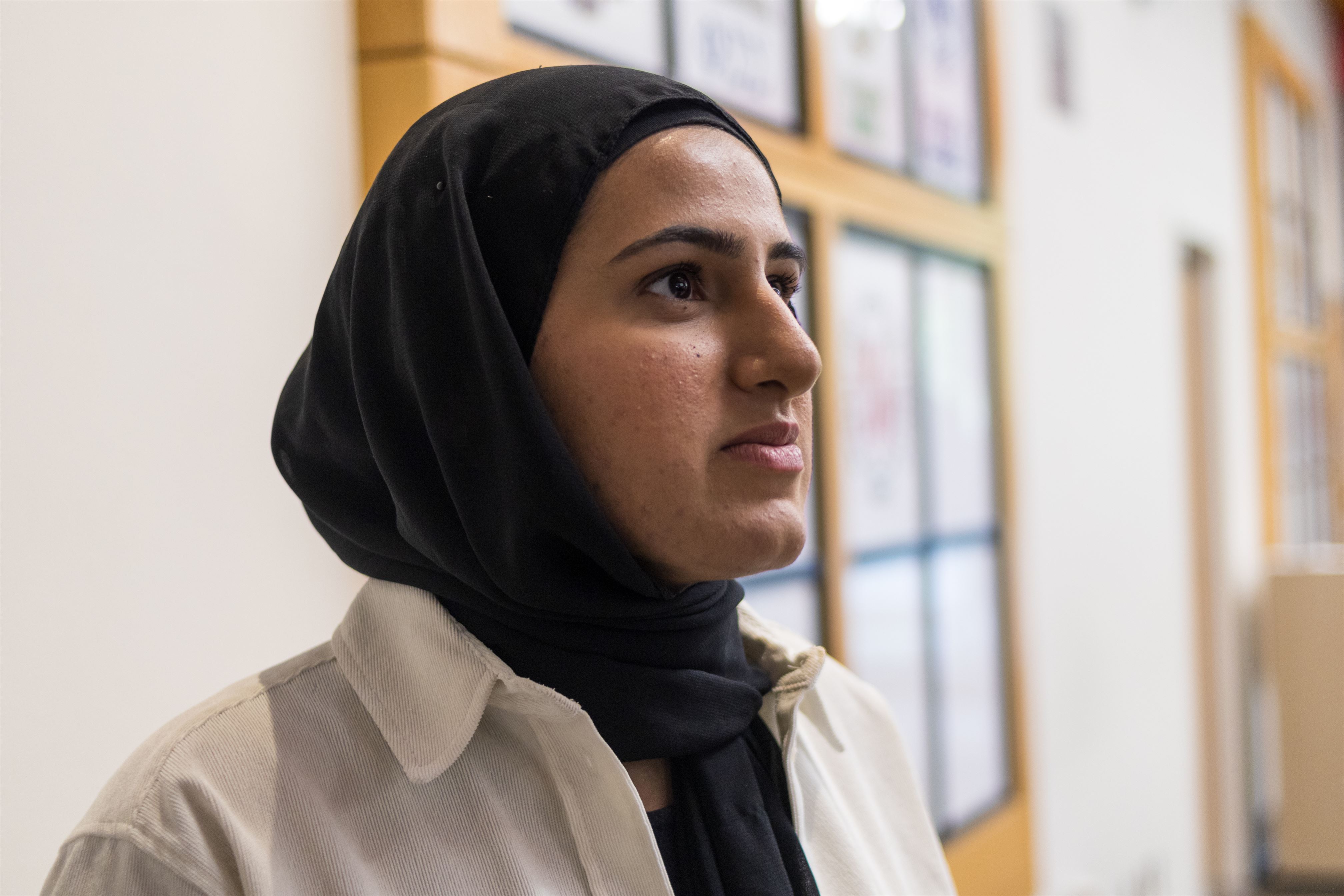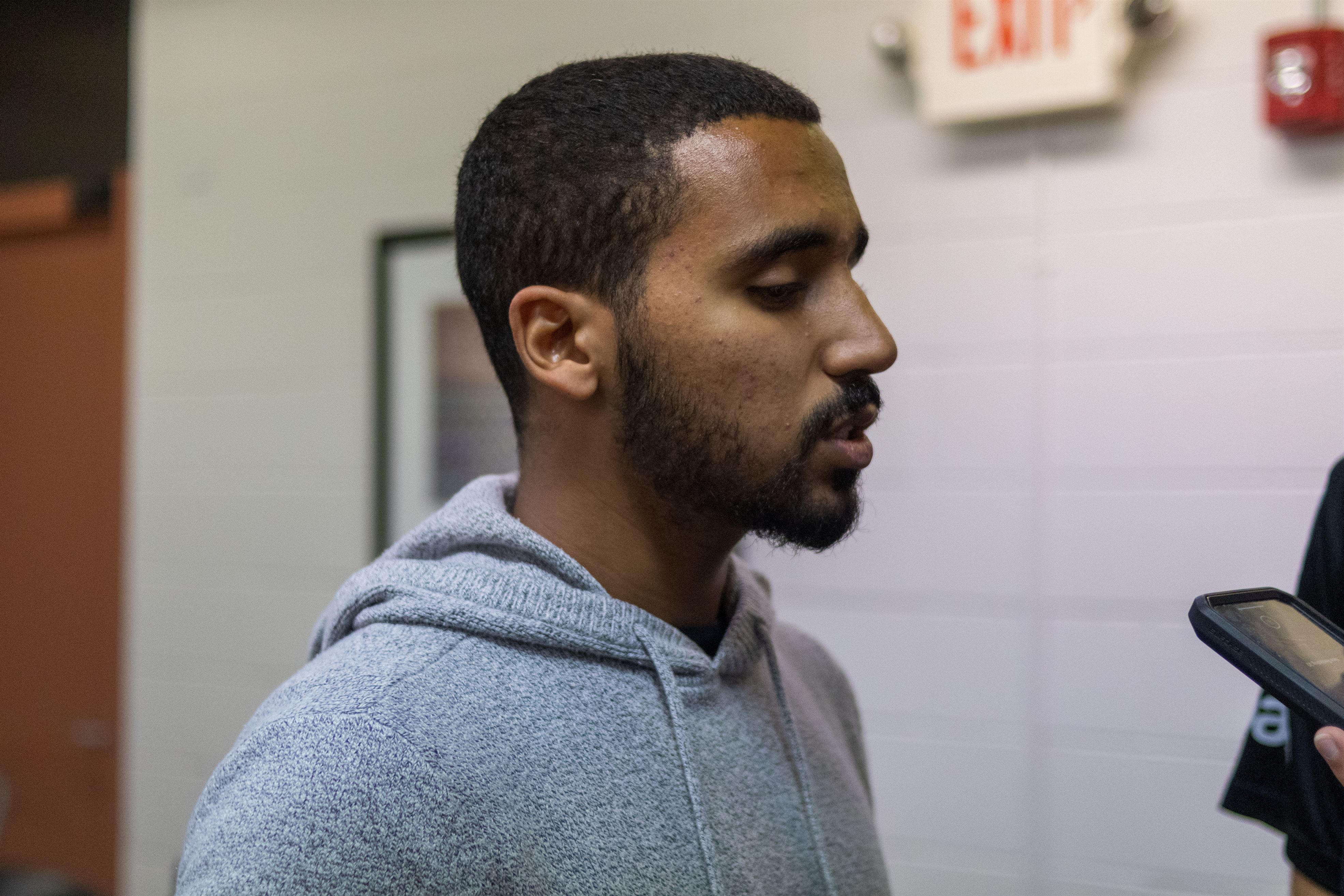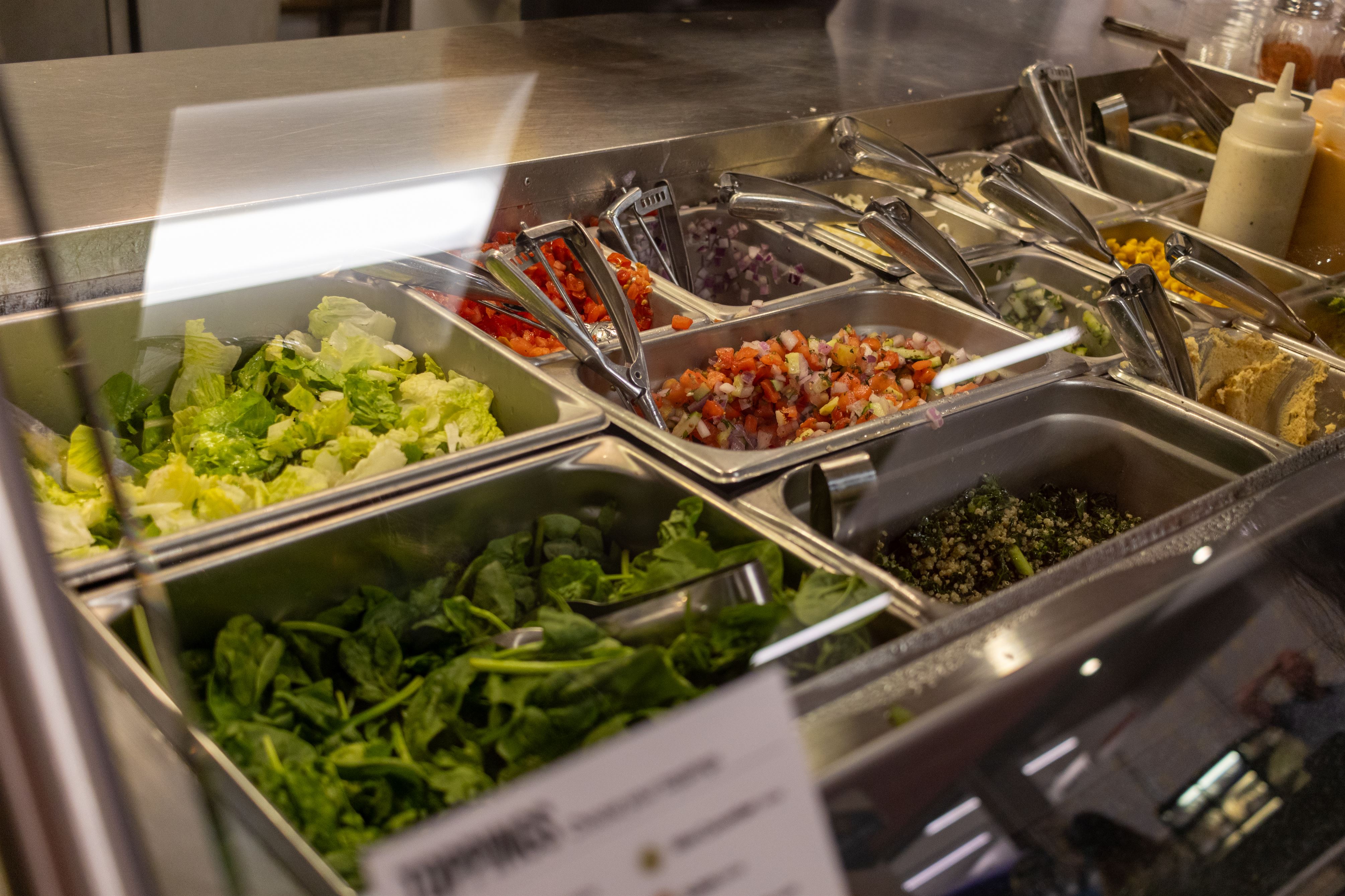Montclair State University is one of the most diverse colleges in New Jersey, probably among the most diverse in the nation. People from all walks of life meet here to further their education and meet new people that they would have never met before in their day-to-day lives.
With exemplary diversity comes a seemingly simple but tricky problem. What do the students eat on campus, and how do you accommodate different dietary restrictions? Montclair State is in the middle of a suburb, and an expensive one at that, which means Upper Montclair, the local shopping district, while having a ton of options and being five minutes away by car and 10 by train, is out of budget for the typical student here.
One of the many communities at Montclair State is Muslim students. Due to religious customs, Muslims students have a dietary restriction where they can only eat what is deemed halal. Muslim law lists which meats are allowed, or halal, and which are forbidden, or haram. There is also a specific technique one must follow to prepare the meat.
When the new dining services vendor, Gourmet Dining, came around to campus, the Montclair State administration put in a halal restaurant called Halal Shack. According to their website, the Halal Shack seems to be a restaurant you find only on a college campus, providing what they call “American Halal.” Its food, they say, follows the Islamic guidelines regarding food with an American style like a New York rice cart.
Before the Montclair State administration accommodated the Muslim students’ halal-only diet, the Muslims would have to either eat what they could from the campus offered, bring food from home, travel off campus for food or wait until they got home.
For incoming Muslim freshmen, this could make them feel more welcomed into the campus community and feel a little less stressed about fitting in and finding friends when they do not have to think about what to eat. Back in high school, Muslims like freshman biology major Iman Razzaq would go the whole school day without food or eat the same thing day in and day out.

After struggling to find halal food options in high school, freshman biology major Iman Razzaq is pleased to see the addition of Halal Shack.
Sal DiMaggio | The Montclarion
“I would either have pizza every single day, or I wouldn’t even eat lunch sometimes, and I just wait until I get home,” Razzaq said.
Montclair State has a sizeable Muslim community, so for the administration to get more Muslim students and faculty to spend more time on campus for lunch and other things, there needed to be a good, reliable halal food option. People need to feel welcomed and supported to want to spend more time at a particular place.

Hussein Habashi, the current president of the Muslim Student Association, is pleased with what he has seen from Halal Shack.
Sal DiMaggio | The Montclarion
“Montclair State has a large Muslim community, and them accommodating for a halal food option is showing support to Muslims,” said Hussein Habashi, the current president of the Muslim Student Association.
Habashi was skeptical about Halal Shack when he first saw it.
“It seemed like they were trying to do something new,” Habashi said. “I wasn’t super impressed with it.”
But to his surprise, his first taste was positive.
“But when I tried the food, the food turned out to be good,” Habashi said.
Former Muslim Student Association president and Montclair State alumnus Ali Eldeeb has been hoping for more halal options since he was a student.
“We have been dreaming of halal food options for many years due to religious obligations,” Eldeeb said. “Many students used to exit the campus to go outside and find halal food.”
Last semester, the Montclair State administration listened to and worked with the MSA e-board to provide Muslim students with more halal options on campus, such as options at the previous pizzeria or late-night options during Ramadan, a Muslim holiday. Eldeeb was at the forefront of getting those measures to be taken.
Eldeeb is thankful the process of adding halal foods to campus has gone smoothly.
“[The administration] was very supportive and thoughtful enough to work with us to create halal food options for Muslim students on campus,” Eldeeb said.



